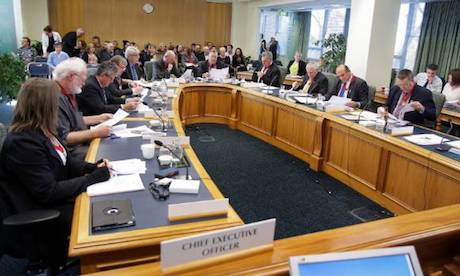Across New Zealand, 58 regional, district and city councils start their meetings with some sort of blessing, 18 do not.
Among those who use some form of blessing, 13 pray, 26 say a karakia, 19 use a mix of both or another blessing and 18 don’t use anything.
Massey University’s Professor Peter Lineham, whose research specialises in New Zealand’s religious history, said most councils which prayed had done so “for a very long time.”
“Gradually, it has been eliminated from most of the larger councils. The moment anybody protests about it, effectively it comes to an end.”
The new trend was using a karakia which was generally considered acceptable, whereas a European Christian prayer may not be, he said.
“Within officialdom, there is a real change of attitudes, where effectively Māori karakia have come to replace the traditional ‘this is a Christian country but with no commitment to any specific denomination’.”
Chief legal adviser at the Human Rights Commission, Janet Anderson-Bidois, said a karakia could be either secular or religious.
“While karakia, blessings or prayers should never be compulsory, some public institutions have introduced elements of tikanga Māori as part of their acknowledgement of biculturalism under the principles of the Treaty of Waitangi, or say a prayer as a continuation of long-held traditions.”
Local Government New Zealand (LGNZ) president Dave Cull said councils were free to open meetings as they chose.
“Many councils use the LGNZ standing orders template, which states that local authorities may choose to recognise the civic importance of an occasion through some form of reflection.”
This could be an expression of community values, a reminder of the contribution of the members who have gone before, or a formal welcome such as a mihi whakatau, Cull said.
Source
- stuff.co.nz
- Image: Stuff.co.nz
